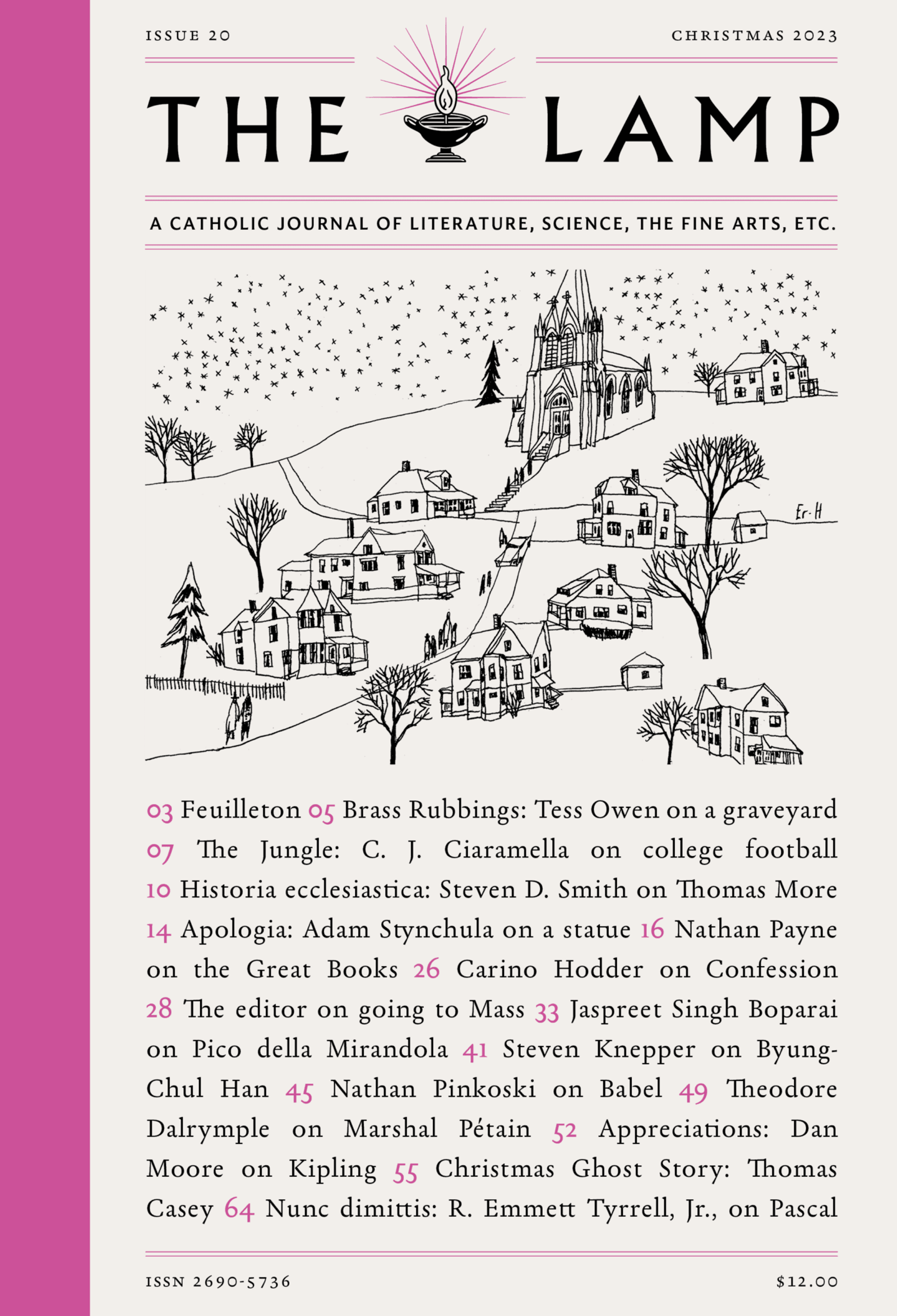When I was a young boy, I was often visited by a vision of the Virgin Mary standing by a stone well on a dusty road by her home, scooping up water in a jar to take back to her family, which of course included a rather illustrious child. In later years, the child appeared at the Temple to the distress of his mother, and later still when he was a grown-up, he relieved his mother’s anxieties on at least one occasion by changing water into wine, which Holy Scripture tells us was eminently potable. On and on, these visions flickered. Today I envision them again with increased frequency. They come unbidden. As if from nowhere.
I am not claiming some sort of supernatural experience; rather I believe that these images are probably the residue of holy cards I collected in school in my youth. I think they are a part of the memoirist’s accumulated baggage. I have been reintroducing myself to my past, and the more I think back, the more images come forth. In some ways, I am now a different man than when I began disinterring my past. Sometimes the memories are painful; for instance, the Clintons’ attempt at putting me in jail. Most often, they are reassuring. I recall my successful effort to crash Bill’s sixtieth birthday party in Toronto, where I wowed the assembled Clinton brain trust when I told them that I was the author of Finnegans Wake. No one doubted.
Most of the adventures were a lot of fun. Certainly, the images drawn from biblical times on a dusty road in Nazareth were reassuring. In fact, every thought drawn from biblical times is reassuring. Eventually, I came to the conclusion that God has been at the center of my life. As the Bible says, He is always with us whether we invite Him or not. He was with me through the raucous times and the more painful moments. Sometimes, I owe Him an apology. Other times, I thank Him for his consolation.
In my early years, I was troubled by very little, though some questions continued to nag at me. One is, “How did I get here?” Or, “Why am I here in the first place?” Finally, there is my objection, uttered ever more weakly through the years, “I never asked to be here,” which left me with one more question: “So, what is it all about?” Fortunately, I came across Pascal. Many young skeptics are never fortunate enough to find Pascal. He supplied the initial answer to my question. The answer is God. I took Pascal’s famous wager and bet on God’s existence. Intriguingly, the famed skeptic George Jean Nathan, Mencken’s sidekick and a founder of the first American Spectator, also took Pascal’s wager toward the end of his life. He became a Catholic. Allegedly, George—ever the pleasure-seeker—did it because he “wanted to go to Heaven.” Or, as that mysterious woman said to Bob Novak at Syracuse University so many years ago: “Life is short, but eternity is forever.”
That was my first step. My second, which deepened my belief in God, was to consider Saint Thomas Aquinas’s proofs for his existence. They were formulated in his Summa Theologiae, where he argued that the existence of motion requires a first mover, that the existence of efficient causality requires a first cause, and that the design evident throughout the visible world requires a designer. Thomas marshaled other arguments for the existence of God, but by the time I had mulled those over, I was a believing Thomist. Anyone who takes the time to think about Thomas’s five ways to prove God’s existence will find them convincing. I knew Christopher Hitchens for years, first as an opponent, then as a friend. The Clintons could have that kind of seismic effect on rational minds. I am sorry I never took up the arguments of Pascal and Thomas with Christopher. My guess is that he got to them eventually on his own.
Why did God create us? I would think that running the universe was pretty much a full-time job. We are told by people who ponder such questions that God is a loving God. He created humans to share His life with them. He made us rational and free—in His “image,” as the Bible says. That makes sense. Otherwise, He created us for less generous reasons, to thwart and frustrate us, which makes no sense. Thus, I am putting my money on God, and if I am wrong, it costs me nothing.
R. Emmett Tyrrell, Jr., is the founder and editor-in-chief of The American Spectator.




